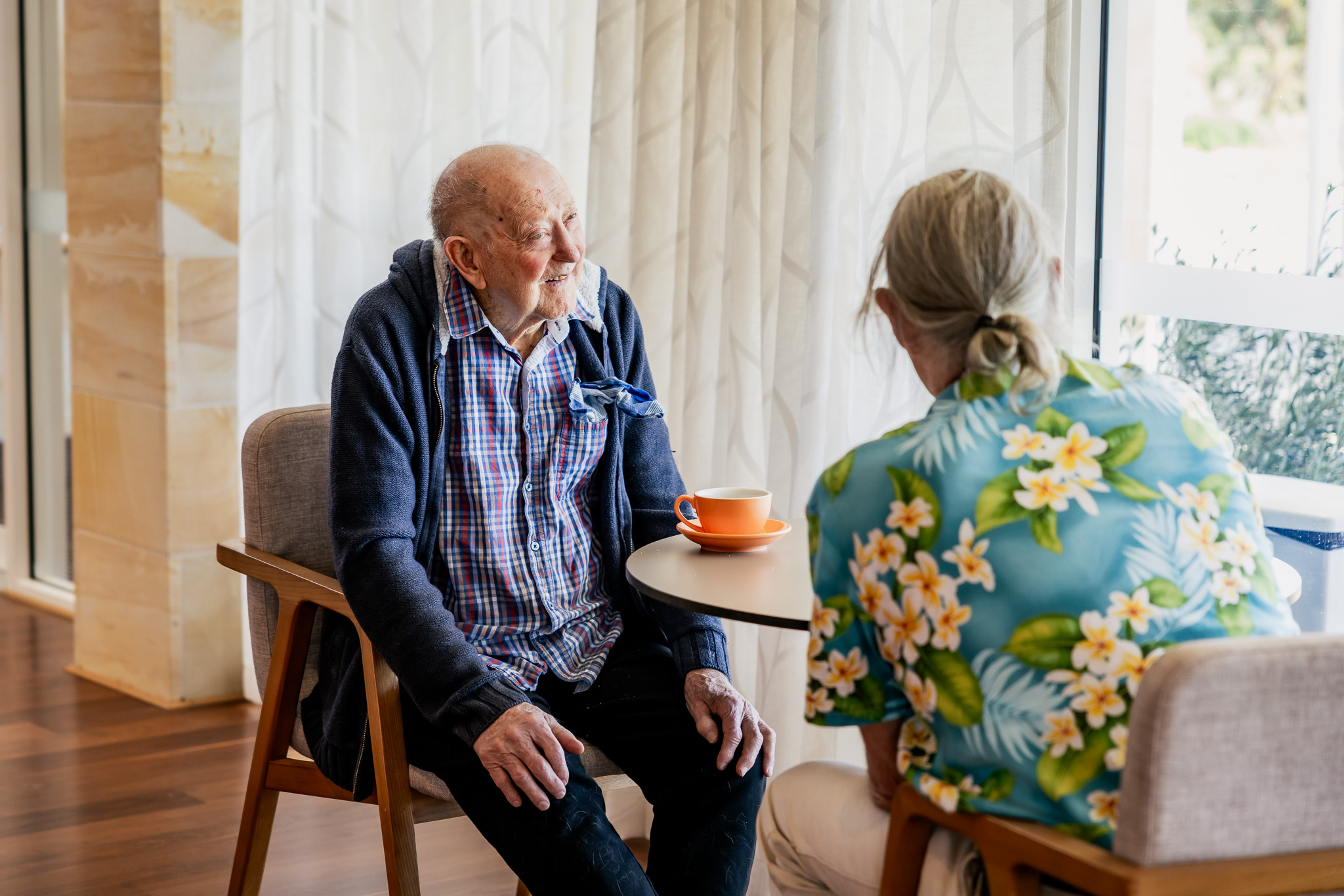As your loved one ages, their healthcare and living needs may change, and many families face the decision of finding the right aged care home. This can be a challenging and emotional process, but with the right guidance and considerations, you can ensure your loved one gets the best care and support.
At Juniper, we believe in people – their quirks, their interests, their family and friends, their life experiences. When choosing the right aged care home, it’s important that you can find a home that can celebrate the unique qualities that make your loved one who they are, to enable them to keep connected to being the person they have always been.
Here, we will explore the key factors to consider when choosing the right aged care home.
1. Assessing the needs of your loved one
The first step in finding the right aged care home is to assess the specific needs of your loved one. Different individuals require varying levels of care, and it’s crucial for healthcare providers, Aged Care Assessment Team (ACAT) assessors, GPs, and other health professionals to thoroughly assess their physical and medical requirements. These are the factors that providers consider when offering placements. Simultaneously, it’s essential for families and loved ones to understand and take these factors into account when making care decisions:
- Medical conditions: Does your loved one have any medical conditions that require specialised care or equipment?
- Mobility: Consider their mobility level and whether they need assistance with daily activities like bathing, dressing, and eating.
- Cognitive function: If your loved one has cognitive issues like dementia, you may need to consider a home with specialised dementia care depending on their needs.
- Social and emotional needs: Ensure the home can meet your loved one’s social and emotional needs with activities and social outings
2. Location and accessibility
The location of the aged care home is an essential consideration. You’ll want to choose a home that is convenient for family and friends to visit. Consider factors like proximity to your home, public transport, and the overall accessibility of the home. A location that is easy to reach can make it more comfortable for you to maintain close relationships with your loved one.
3. Quality of care
Quality of care is paramount when selecting an aged care home. To assess this, you should:
- Research the home’s star rating: In Australia, you can access the star rating of aged care homes through My Aged Care website, which is a government-run platform designed to provide information about aged care services to the public.
- Check for certifications and licenses: In Australia, aged care homes must meet certain accreditation and regulatory requirements to provide care and services to residents. These requirements are established and monitored by the Australian Government’s Aged Care Quality and Safety Commission.
- Tour the home: Schedule a visit to the aged care home to get a feel for the environment, meet the staff, and ask questions about the care they provide.
4. Staffing and training
All Australian residential aged care homes are regulated by the Australian Government’s Aged Care Quality and Safety Commission. They have specific requirements regarding staffing and training to ensure the safety and well-being of residents.
Staffing requirements:
- Registered Nurses (RNs): All aged care homes are required to have a 24/7 Registered Nurse to provide medical care and oversight.
- Enrolled Nurses (ENs): Enrolled nurses provide support to registered nurses and assist with medications and basic care.
- Multi-Skilled Carer: Assist with daily living activities, such as bathing, dressing, and meal assistance.
- Allied Health Professionals: Most homes have allied health professionals like physiotherapists, occupational therapists, and dietitians to support residents’ specific needs.
- Management and administrative staff: Aged care homes also require management, administrative, and support staff to ensure the smooth operation of the home.
Training and Qualifications:
- Mandatory Training: Staff working in aged care homes must undergo mandatory training in areas such as infection control, manual handling, and first aid.
- Clinical Training: Clinical staff, including RNs and ENs, should have qualifications in nursing or relevant clinical disciplines.
- Aged Care-Specific Training: Staff should receive training in aged care principles and practices to provide person-centered care.
- Ongoing Professional Development: Aged care staff are encouraged to engage in continuous professional development to keep their skills and knowledge up-to-date.
- Cultural Competency Training: Given the diversity of aged care residents, staff often undergo cultural competency training to provide culturally sensitive care.
5. Facilities and amenities
Consider the facilities and amenities available at the aged care home. These can greatly impact your loved one’s quality of life. Check for things like:
- Clean and well-maintained rooms
- Common areas for social activities
- Gardens or outdoor spaces
- Activities and therapy options
- Nutritious meals
6. Financial Considerations
Aged care can be costly, so it’s important to understand the financial aspect. Researching the pricing structure, available funding options, and potential government subsidies or assistance programs is a crucial step in planning for aged care.
To understand how fees work for residential aged care, you can find information on our fees page. For pricing details for each Juniper Residential Aged Care Home, you can find information on each of our home’s dedicated page. You can search for a specific location here.

